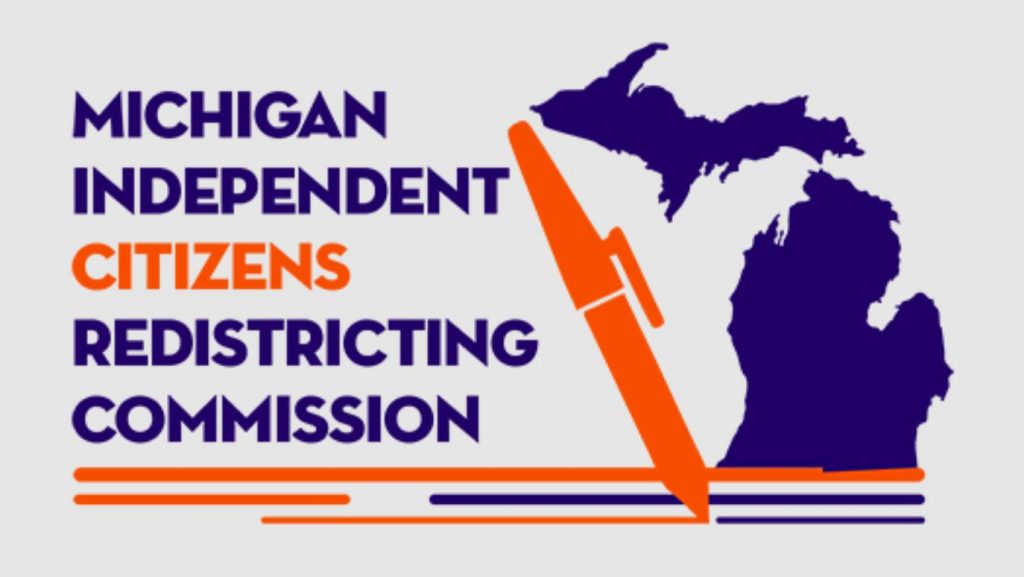Two Authorities on Gerrymandering Weigh in on Michigan’s Redistricting Commission
The new Michigan Independent Citizens Redistricting Commission is hearing anger and frustration from all sides, but experts say the process is still a vast improvement.

The new Michigan Independent Citizens Redistricting Commission has been hard at work drawing new district lines, and it will soon open up its public comment period on the proposed draft maps. There’s a lot of anger and frustration on both sides of the aisle about the process.
“I think that what they have come up with here by most of the metrics has got a small Republican lean, but does a really good job, I think, of bringing back some balance and competitiveness into a purple state.” –David Daley, author of “Ratf**ked: The True Story Behind the Secret Plan to Steal America’s Democracy”
But two people who are intimately familiar with the partisan gerrymandering that defined our current political maps in Michigan say the process — even with its flaws — is still a vast improvement over what we’ve seen in the past.
Listen: Two authorities on partisan gerrymandering weigh in on Michigan’s new redistricting process.
Guests
David Daley is the author of the 2016 book “Ratf**ked: The True Story Behind the Secret Plan to Steal America’s Democracy,” and has a piece in The New York Times titled “Voters Wanted Fair Redistricting. They May Get Gerrymandering Instead.”
“I think that the 10 draft maps that [the commission] approved the other day does a reasonably good job of unwinding much of the gerrymanders that we saw in the Michigan state Legislature and the congressional map over the course of the last decade,” says Daley. “I think that what they have come up with here by most of the metrics has got a small Republican lean, but does a really good job, I think, of bringing back some balance and competitiveness into a purple state.”
Jeff Timmer is a former Michigan GOP state executive director and longtime political strategist who in 2011 helped redraw Michigan’s political maps, which were drawn to favor Republicans running for office. He now admits that was the case and accepts culpability for the toxic politics that have followed.
He agrees that the commission has done a good job overall of undoing the gerrymanders of the past. But he says it could go even farther to reduce undue partisan advantages.
“These 10 maps that they’ve come out with this week still have the thumb on the scale to favor Republicans,” says Timmer. “And it’s pretty easy to undo that. And I’m sure that they’ll hear a lot more about that during the public comment period.”
“There were two main keys to gerrymandering in Michigan when I sat down to draw maps 10 and 20 years ago. Relying on county and city or township geography, keeping those intact, helps Republicans. The other thing that helped Republicans was the Voting Rights Act — packing those districts, those majority minority districts, into cities like Detroit.” –Jeff Timmer, political consultant
There are also some concerns about diluting Black majorities in a number of districts. Several Detroit lawmakers and activists expressed their frustration with some of the maps proposed by the redistricting commission at a downtown news conference on Tuesday.
Timmer says the reason those districts include such large African American majorities in the first place is because Republican gerrymanderers used the strategy of “packing” those voters into single districts to their own advantage, using minority representation requirements under the Voting Rights Act as an excuse.
“There were two main keys to gerrymandering in Michigan when I sat down to draw maps 10 and 20 years ago. Relying on county and city or township geography, keeping those intact, helps Republicans. The other thing that helped Republicans was the Voting Rights Act — packing those districts, those majority minority districts, into cities like Detroit,” says Timmer.
“We would sit down and negotiate with certain members of the Black caucus in the House and Senate in Lansing, negotiate with them to draw the lines within the city of Detroit, for example, and in turn, they voted for the plans,” he continues. “In 2011 and 2001, there were Black Democrats who voted for the Republican gerrymandered plans. That was how we did it. And so packing the African American population of Detroit into districts — there are several seats in the state House right now that are more than 90% Black. And if that happens again, that only benefits Republicans.”
Trusted, accurate, up-to-date.
WDET strives to make our journalism accessible to everyone. As a public media institution, we maintain our journalistic integrity through independent support from readers like you. If you value WDET as your source of news, music and conversation, please make a gift today.
